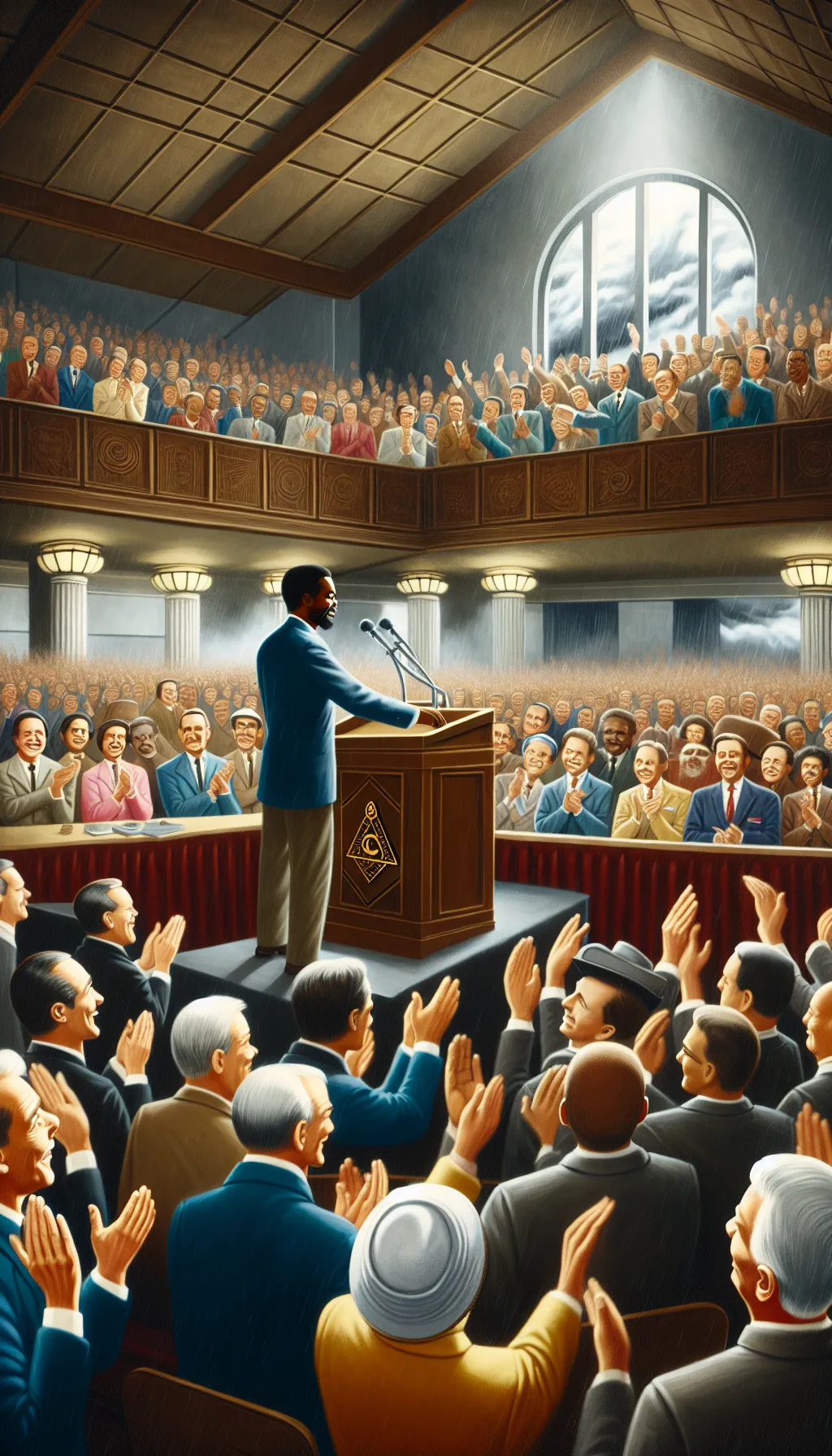United States – The Final Echo: Martin Luther King Jr.'s Last Speech - April 3, 1968
TLDR;
- Event: Martin Luther King Jr. delivered his last speech, ‘I’ve Been to the Mountaintop,’ on April 3, 1968, in Memphis, Tennessee, supporting striking sanitation workers.
- Message: He emphasized economic justice, unity, and perseverance, using the biblical story of Moses to inspire hope and determination.
- Foresight: King acknowledged threats to his life, prophetically stating he might not reach the ‘Promised Land’ with his followers, but assured them they would.
- Legacy: Assassinated the next day, King’s speech remains a powerful call to action for justice and equality, inspiring future generations.
–
Story
The air was thick with anticipation inside the Mason Temple in Memphis, Tennessee, on the night of April 3, 1968. The crowd, a sea of hopeful faces, braved the stormy weather, their determination mirroring the resolve of the striking sanitation workers they had come to support. As Martin Luther King Jr. took the podium, the room buzzed with energy, punctuated by applause and calls of ‘Amen.’

King’s voice, both weary and fiery, filled the hall as he delivered what would become his final speech, ‘I’ve Been to the Mountaintop.’ He spoke of the struggles and triumphs of the civil rights movement, emphasizing the fight for economic justice and the dignity of the Memphis sanitation workers. His words were a call to collective action, urging unity and perseverance in the face of adversity.
There was a profound prescience in his tone that night. King spoke of threats against his life, yet he remained undeterred. ‘I’ve seen the Promised Land,’ he declared, drawing on the biblical story of Moses. ‘I may not get there with you. But I want you to know tonight, that we, as a people, will get to the Promised Land.’ This unscripted climax, inspired by the crowd’s energy, was both uplifting and striking in its foresight.
The following evening, on April 4 at 6:01 p.m., the world would be shaken by the news of his assassination. King’s final speech became a testament to his vision and sacrifice, echoing through history as a reminder of the work left unfinished.
His words continue to inspire generations, a beacon of hope and a call to action for justice and equality.
–
| Would a different speech have changed the course of history? |